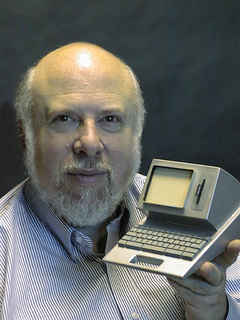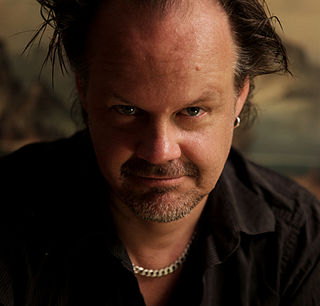A Quote by Ted Nelson
The world is not yet finished, but everyone is behaving as if everything was known. This is not true. In fact, the computer world as we know it is based upon one tradition that has been waddling along for the last fifty years, growing in size and ungainliness, and is essentially defining the way we do everything. My view is that today’s computer world is based on techie misunderstandings of human thought and human life. And the imposition of inappropriate structures throughout the computer is the imposition of inappropriate structures on the things we want to do in the human world.
Quote Topics
Along
Based
Been
Behaving
Computer
Defining
Essentially
Everyone
Everything
Fact
Fifty
Finished
Growing
Human
Human Life
Human Thought
Imposition
In Fact
Inappropriate
Know
Known
Last
Life
Misunderstandings
Size
Structures
Techie
Things
Thought
Throughout
Today
Tradition
True
View
Want
Way
World
Years
Related Quotes
I am confident that we can do better than GUIs because the basic problem with them (and with the Linux and Unix interfaces) is that they ask a human being to do things that we know experimentally humans cannot do well. The question I asked myself is, given everything we know about how the human mind works, could we design a computer and computer software so that we can work with the least confusion and greatest efficiency?
The burgeoning field of computer science has shifted our view of the physical world from that of a collection of interacting material particles to one of a seething network of information. In this way of looking at nature, the laws of physics are a form of software, or algorithm, while the material world-the hardware-plays the role of a gigantic computer.
Because computers have memories, we imagine that they must be something like our human memories, but that is simply not true. Computer memories work in a manner alien to human memories. My memory lets me recognize the faces of my friends, whereas my own computer never even recognizes me. My computer's memory stores a million phone numbers with perfect accuracy, but I have to stop and think to recall my own.
I was asking questions which nobody else had asked before, because nobody else had actually looked at certain structures. Therefore, as I will tell, the advent of the computer, not as a computer but as a drawing machine, was for me a major event in my life. That's why I was motivated to participate in the birth of computer graphics, because for me computer graphics was a way of extending my hand, extending it and being able to draw things which my hand by itself, and the hands of nobody else before, would not have been able to represent.
I feel like we are so used to CGI [computer-generated imagery] and thank god because it is a wonderful tool, but there is an element of everything you are looking at has been created in the comfort of a studio. I want to return to a world where I can celebrate when you are really interacting with the world.



































